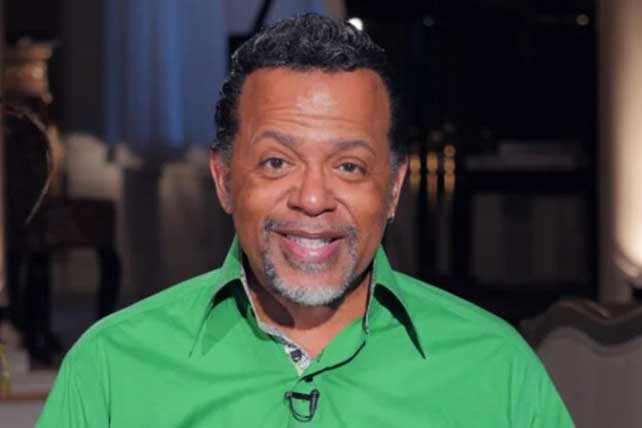Pearson, a former student and onetime regent of Oral Roberts University, addressed his friends and supporters directly via a TikTok video that was posted on Oct. 31 and cited on X (formerly Twitter).
“I love you, I cherish you, I respect you, honor you, have needed you all along to be the audience to let me sound off on,” he said, laughing softly. “I’ve done a lot of thinking out loud, and you’ve eavesdropped on a lot of it — but I knew you were there.”
Pearson said he was speaking from his “hospice room,” and repeated a favorite saying of his parents — “be careful and prayerful” — after briefly breaking into “I’ll Be Thinking of You,” a song by gospel singer Andraé Crouch.
“This will be probably one of the last times you’ll see me like this, as I may be closing some things out,” he said, speaking to the camera with a U-shaped pillow around his neck. “But I’ll never close you out in consciousness. I’ll never stop thinking of who you are, and why you are, and how, somehow, we were divinely drawn together in this divine intersection of lives. But I feel you and I hope you feel me, even when I’m in heaven, or on the other side, or the other iteration, I’ll be thinking of you.”
The trajectory of Pearson’s career included serving as an associate evangelist with the Oral Roberts Evangelistic Association, hosting the Azusa annual conferences that drew thousands of people to Oral Roberts University’s campus, and joining fellow Republicans in supporting then-presidential candidate George W. Bush at an “African-Americans for Victory 2000” event.
After watching a television news report about the persecution of the Hutus and Tutsis from Rwanda, he began to make what became a sharp turn away from the traditions of his faith. He folded the remnants of his interracial Higher Dimensions Family Church in Tulsa into a Unitarian Universalist congregation, embracing its inclusiveness.
“I have no regrets for what I did in this town,” he said in a 2008 Tulsa World story.
In 2009, he became the interim leader of Christ Universal Temple, a prominent Chicago congregation connected to the New Thought movement that focuses on positive thinking.
More than a decade ago, he became a senior bishop of The Fellowship of Affirming Ministries, said Bishop Yvette Flunder, founder of the organization whose congregations are predominantly African American and led by LGBTQ or LGBTQ-affirming clergy.
“Bishop Carlton Pearson is a man of incredible courage,” Flunder told Religion News Service days after the posting of the TikTok video. She recalled Pearson, whom she has described as “my friend and my brother,” discussing with her how he had ceased to believe in a literal hell, started to view the divine as inclusive of other religions, and begun to support LGBTQ people.
“I frankly don’t know anyone who had as much to lose in terms of what people consider loss,” she said, recalling how people he had launched into ministries in the U.S. and beyond later shunned him. “He gave those things up for what he believed to be the true heart of God.”
Over the course of his career, Pearson shifted from focusing on one faith to joining the board of Interfaith Alliance. Once a self-described “strong pro-life advocate,” he was hailed for his “powerful rendition of ‘I Believe I Can Fly’” at a 2007 interfaith prayer breakfast of Planned Parenthood Federation of America. A two-time winner of Stellar Awards for his contributions to gospel music, Pearson was dropped by a Christian music label. The label, which primarily served an evangelical community, said continuing to align with Pearson “would bring us into public disrepute.”
“The price that he paid for what he believes is something that should go down in the history of people who are called saints, in my opinion,” said Flunder.
Pearson’s story was featured in the 2018 Netflix drama “Come Sunday,” in which actor Chiwetel Ejiofor portrayed the minister.
“I’m a little exhausted,” Pearson said at the end of the TikTok video that was titled a “departing message.
“But know that I love you and wanted you to hear from my own voice how deeply appreciative I am of who you are and that you are. Peace and blessing.”
This article originally appeared here.

